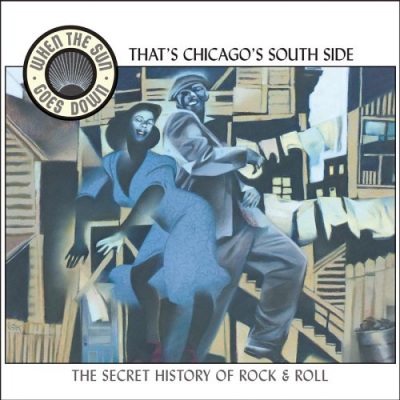
That's Chicago's South Side (When the Sun Goes Down series)
Ask a rock & roller to discuss Chicago's contributions to the blues, and he/she is likely to talk about Chess Records and electric post-World War II greats like Muddy Waters, Howlin' Wolf, Willie Dixon, Little Walter, Buddy Guy, and Junior Wells. But the Windy City had a healthy blues scene long before the rise of Chess ? one that went back to the days of Al Capone and Prohibition. Spanning 1931-1942, When the Sun Goes Down, Vol. 3: That's Chicago's South Side spotlights the acoustic pre-Chess, pre-Muddy Waters era of Chicago blues ? an era that helped pave the way for Chess Records as well as rock & roll. The recordings on this excellent CD point to fact that, long before Chicago became synonymous with electric blues, the city had its own unique blues sound. Gems like Sonny Boy Williamson's "Good Morning, Schoolgirl" (1937), Roosevelt Sykes' "Devil's Island Gin Blues" (1933), and Tommy McClennan's "Bottle It Up and Go" (1939) are quite different from the blues that were coming from the Deep South in the '30s and early '40s ? these artists offer an acoustic sound, but a harder, tougher acoustic sound than the Southern country blues that were coming from Mississippi, Georgia, and Tennessee back then. Of course, some of the artists who blues fans associate with Chicago blues were originally from the South; Muddy Waters and Howlin' Wolf, for example, were born in Mississippi. But when Southern bluesmen moved north and interacted with Chicago-based musicians, their music could easily take on a more urban outlook. And an urban outlook definitely prevails on this CD, which underscores the richness of Chicago's pre-Chess blues scene
